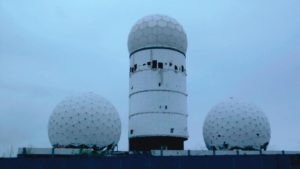
Anri Sala, Answer Me, 2008, single-channel HD video, color, stereo sound, 4:51 min.
Chronopolitical Approaches
Chronopolitical approaches constitute strategic attempts to deal with the aporias of time. They not only shape contemporary artistic practice, but are increasingly also gaining importance in art critical discourses. They share a skepticism towards any claim to historical coherence and evidence, which is why they exemplify chronological contexts as non-linear relations. The linearity of time in video and film is challenged, for example, by means of repetition, displacement, or synchronization. In particular, the artistic (re-)construction of historical events, so-called re-enactments, lead to anachronistic overlays of past and present. Not least, utopian concepts stimulate us to turn our backs on the present for a moment and embark on an imaginary journey into the future. Such time-related strategies will be investigated within the scope of the research project as an embodiment of chronopolitics and questioned with regard to their historical significance.
Furthermore, chronopolitical approaches that cannot be described in art-immanent terms, such as backdating, will also be taken into account. These enable artists not only to place individual works retrospectively in a different historical context, thus influencing their reception. At the same time, they offer the opportunity to shift the chronology overall in the œuvre, for example by dividing the work retrospectively into phases in order to trigger a certain form of posthumous fame. By analyzing such dating strategies, it is intended to examine the influence of backdating on historiography and its images of history in order to develop approaches for a skeptically inclined research of datings against this background.